We may not have the course you’re looking for. If you enquire or give us a call on +44 1344 203 999 and speak to our training experts, we may still be able to help with your training requirements.
We ensure quality, budget-alignment, and timely delivery by our expert instructors.
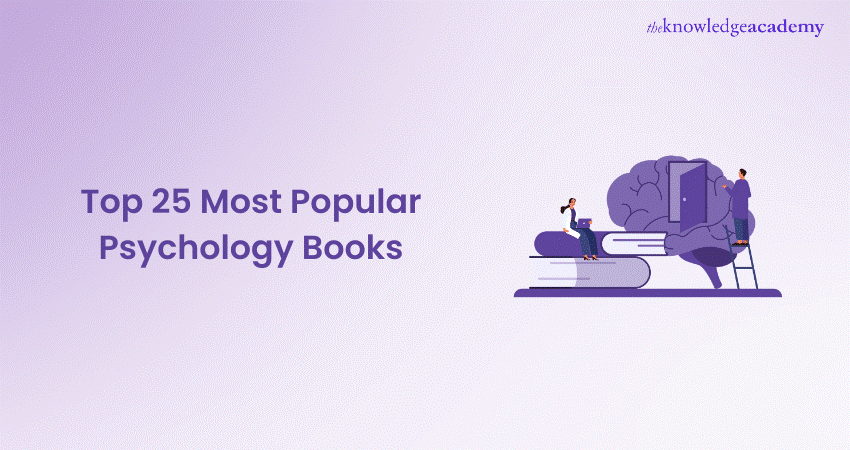
Assume that you are at a bustling airport, waiting for your flight, and you spot someone deeply engrossed in a book about the human mind. Given this scenario, did you feel the thrill of discovering a book that changes the way you see the world? If so, our blog to the Top 25 Most Popular Psychology Books is designed to do just that.
In case you are curious about the intricacies of human behaviour or seeking practical advice for mental well-being, these Psychology Books have something for everything. So, let’s explore certain must-reads that have captivated minds and hearts around the globe.
Table of Contents
1) Importance of Psychology Books
2) Best Psychology Books to add to Your Reading List
a) Influence: The Psychology of Persuasion
b) Thinking, Fast and Slow
c) Man's Search for Meaning
d) The Power of Now
e) Flow: The Psychology of Optimal Experience
f) Quiet: The Power of Introverts in a World That Can't Stop Talking
g) Blink: The Power of Thinking Without Thinking
h) Emotional Intelligence
i) Sapiens: A Brief History of Humankind
j) The 7 Habits of Highly Effective People
3) Conclusion
Importance of Psychology Books
Psychology Books play a crucial position to your understanding of the human mind and behaviour. Here are a few important points that make those Books critical:
a) Self-discovery: They make a contribution to your understanding of yourselves and others, shedding light on the intricacies of human experience. They also offer guidance for personal growth and healing. For people seeking mental well-being, Psychology Books can work as empowering gear. It is due to the fact they offer treasured information about not usual mental fitness problems, such as tension, despair, and stress, imparting techniques for coping and enhancing normal well-being.
b) Self-reflection: Psychology Books additionally promote self-reflection, helping readers recognise their feelings, thoughts, and behaviours. Thus, they offer tools to cultivate self-cognizance and personal growth. These books are particularly crucial for aspiring Psychologists because they function as a basis for their education and professional development.
c) Acquiring Knowledge: These Books introduce aspiring Psychologists to diverse psychological theories, studies methodologies, and evidence-based totally practices. Reading those books allows aspiring Psychologists to comprehensively understand the sphere, its history, and the influential figures who have formed it.
d) Staying Updated: Psychology Books additionally encourage aspiring Psychologists to delve deeper into their hobbies. These books include diverse fields, such as Scientific Psychology, Social Psychology, and Cognitive Psychology, imparting a wealth of statistics and case research that assist aspiring Psychologists develop a nuanced understanding of unique topics.
Best Psychology Books to add to Your Reading List
Here is a list of Psychology Books which can aid you in gaining a deeper understanding of yourself and developing essential skills for well-being:
1) Influence: The Psychology of Persuasion
The book “Influence” by Robert Cialdini is a groundbreaking book exploring persuasion's principles and techniques. Cialdini delves into the elements that affect an individual's decision-making manner and famous the subtle ways wherein human beings are persuaded.
Cialdini’s works introduces the six established standards of have an effect on, including reciprocity, consistency, social evidence, liking, authority, and shortage. He demonstrates how these ideas are applied in real-world conditions via relatable examples and experiments.
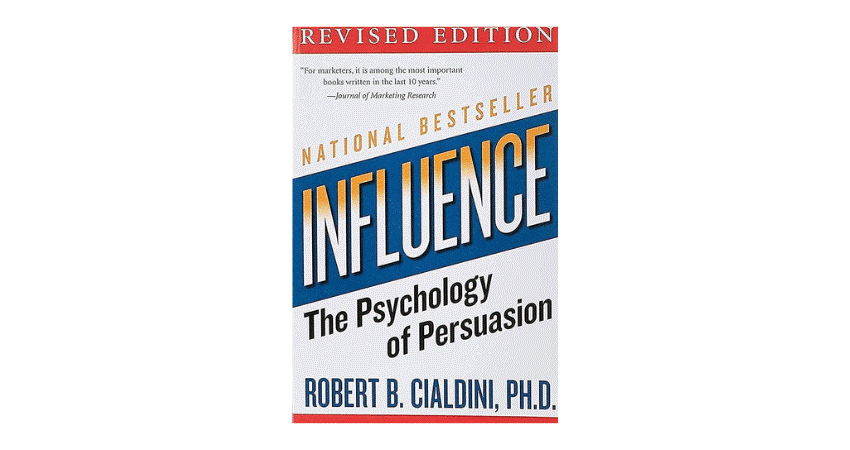
The book emphasises the significance of moral persuasion and provides readers with treasured insights to protect against manipulation and make greater informed alternatives. “Influence” is a timeless aid for every person in search of understanding the energy of persuasion and its impact for your ordinary existence.
2) Thinking, Fast and Slow
This book by Daniel Kahneman explores the two systems of thinking that drive decisions. Kahneman presents research on cognitive biases and provides strategies to improve decision-making skills. He highlights the distinction between intuitive and deliberate thinking, challenging your assumptions about rationality.
The book delves into various cognitive biases and heuristics that affect your judgment. Kahneman also offers practical techniques to overcome these biases and make more informed choices.
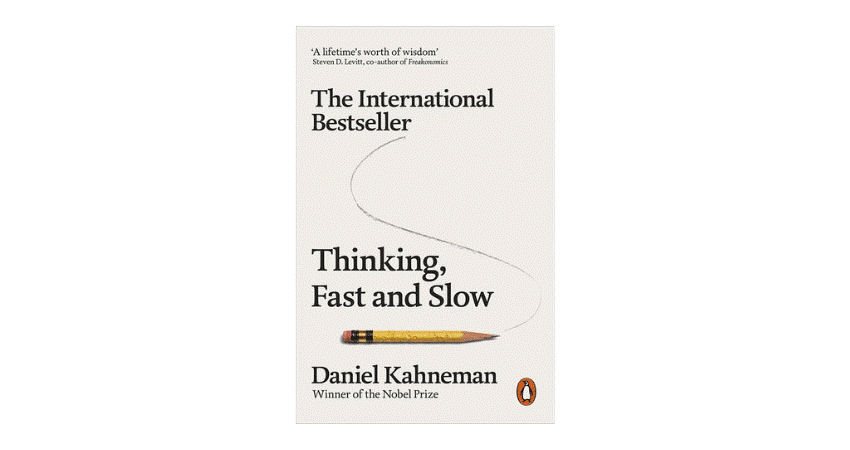
Through attractive examples and thought-provoking insights, “Thinking, Fast and Slow” revolutionises your knowledge of decision-making methods and activates the readers to severely evaluate your own thinking styles.
Kahneman comprehensively explores the human thoughts and the factors influencing one’s selections. This resource is exceptional for every person who wants to enhance their decision-making potential and better understand how the human mind works.
Gain insights into your own traits and behaviours – join our Introduction to Psychology of Personality Course now!
3) Man's Search for Meaning
This book by way of Viktor E. Frankl is a profound exploration of the human look for cause and importance. Based on his reviews as a Holocaust survivor and Psychiatrist, Frankl offers insights into finding meaning even within the most difficult situations.
The book highlights the importance of embracing non-public obligation and growing meaning in someone's existence. Frankl’s method, called Logotherapy, makes a speciality of pursuing which means in place of happiness. Through poignant anecdotes and thought-frightening reflections, “Man’s Search for Meaning” invites readers to contemplate the deeper reason in their existence and discover sources of resilience and desire.
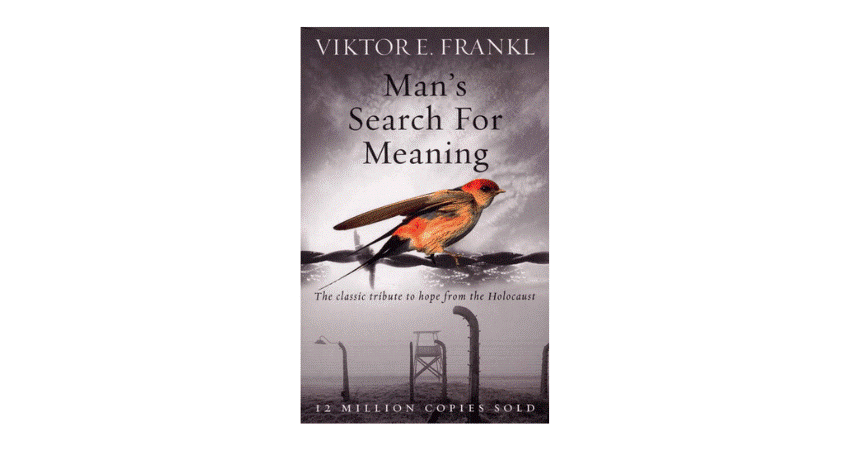
Frankl’s work has had a profound effect on people around the world, presenting steerage and suggestion in navigating the complexities of lifestyles. “Man’s Search for Meaning” stays an undying masterpiece that encourages readers to reflect on their own values and embody the strength of meaning in their lives.
4) The Power of Now
“The Power of Now” by Eckhart Tolle is a spiritual guide emphasising the significance of dwelling within the present moment. Tolle offers insights on transcending the restrictions of the thoughts and locating internal peace and fulfilment.
The book explores the concept of ego and its contribution to human struggling. Tolle encourages readers to allow move of beyond regrets, worries, and instead focus on the present moment as the most effective real reality. Through sensible exercises and teachings, Tolle provides a pathway to awakening and a deeper experience of self-cognizance.
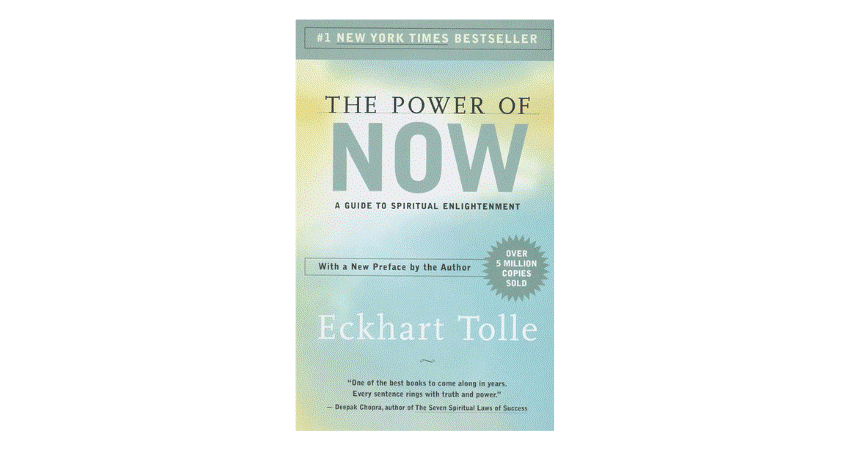
“The Power of Now” has resonated with hundreds of readers and has the potential to transform one’s perspective on life. Tolle’s gentle and compassionate tone makes this book accessible to readers of all backgrounds. It guides them toward a state of presence and contentment amid lifestyles' challenges.
Understand mental disorders and their effect on people with our Psychology Course!
5) Flow: The Psychology of Optimal Experience
The book “Flow” by Mihaly Csikszentmihalyi iterates the concept of float, a state of complete immersion and focus on an activity. Csikszentmihalyi delves into the conditions necessary for experiencing flow and its profound effect for your well-being.
The book includes realistic steerage for cultivating glide in diverse aspects of lifestyles, which include paintings, interests, and relationships. Csikszentmihalyi’s studies and examples shed light on the benefits of completely engaging inside the present moment and the capability for personal growth and fulfilment via the flow.
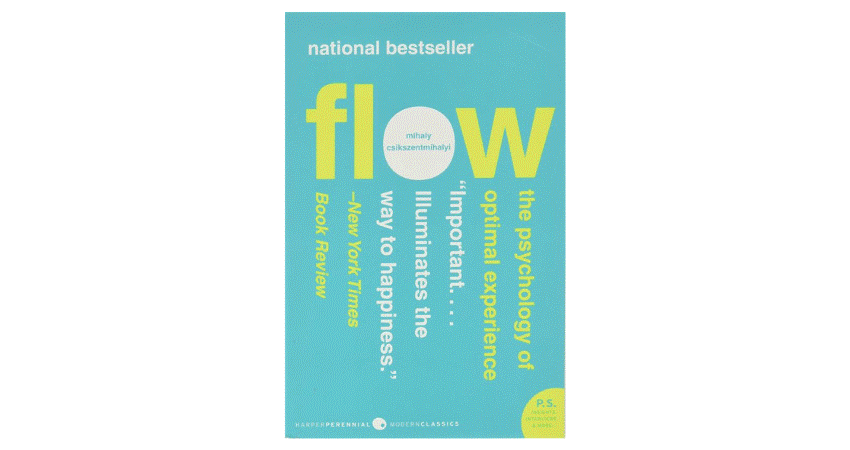
“Flow: The Psychology of Optimal Experience” serves as a roadmap for people seeking to enhance their experiences and discover more delight of their regular lives. Csikszentmihalyi’s paintings conjures up readers to pursue activities that bring them joy, hurdle, and a feel of meaning.
6) Quiet: The Power of Introverts in a World That Can't Stop Talking
The book “Quiet” by Susan Cain celebrates the strengths of introverts in a society that often favours extroversion. Cain challenges misconceptions about introversion and provides insights on how introverts can thrive in various domains.
The book explores the benefits of solitude, deep thinking, and the power of introverted contributions to creativity and innovation. Cain offers practical advice for introverts and strategies for creating environments honouring introverted individuals.
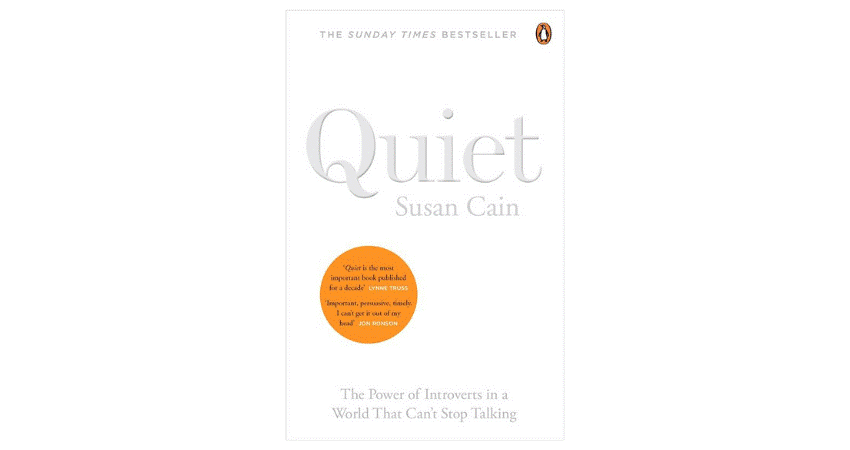
“Quiet” is an empowering read for introverts and extroverts, fostering a more inclusive and balanced approach to human interaction. Cain’s research and personal anecdotes shed light on the unique qualities of introverts and encourage readers to embrace their introversion or appreciate the strengths of introverted individuals around them.
Learn practical strategies to enhance your well-being – sign up for our Positive Psychology Course today
7) Blink: The Power of Thinking Without Thinking
The book “Blink” by Malcolm Gladwell examines the power of intuition and quick decision-making. Gladwell explores the unconscious processes that guide one's snap judgments and reveals when you can trust your instincts.
The book introduces the concept of “thin slicing,” the ability to make accurate and rapid assessments based on limited information. Gladwell examines various examples, such as expert judgment, first impressions, and the adaptive unconscious, to illustrate the potential of rapid cognition.
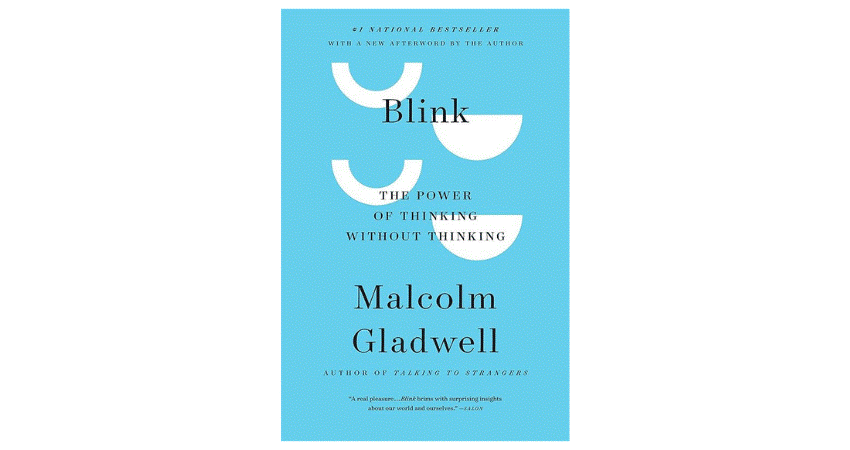
“Blink” challenges the notion that deliberate and conscious decision-making is always superior, shedding light on the remarkable abilities of your subconscious mind. With its engaging storytelling and thought-provoking insights, this book provides a fresh perspective on the power of your intuition and its impact on your daily life.
8) Emotional Intelligence
“Emotional Intelligence” by Daniel Goleman popularised the concept and importance of Emotional Intelligence. Goleman explores the five components of Emotional Intelligence: self-awareness, self-regulation, motivation, empathy, and social skills. The book emphasises the significance of Emotional Intelligence in personal and professional contexts, showing how it can enhance leadership, communication, and overall well-being.
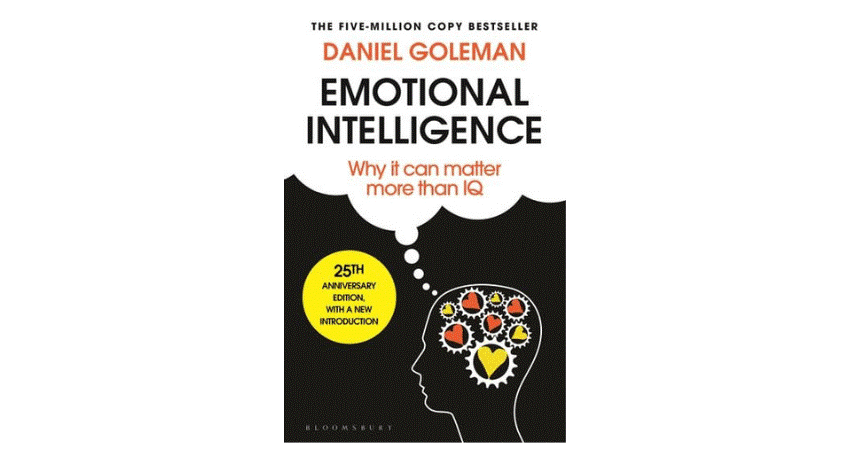
Through practical exercises and insights, “Emotional Intelligence” provides readers with tools to develop their Emotional Intelligence and navigate their emotions more effectively. The Emotional Intelligence Book by Goleman is an excellent resource for those who want to improve their interpersonal skills and build meaningful relationships with others. Goleman's writing style is easy to understand and accessible, making it a valuable tool for anyone seeking to enhance their communication abilities.
Acquire the skills to mitigate Psychological risks – register for our Prevention Psychology Training.
9) Sapiens: A Brief History of Humankind
The book “Sapiens” by Yuval Noah Harari takes readers on a captivating journey through the history of the human species. Harari explores the cognitive, agricultural, and scientific revolutions that shaped human society. The book delves into the evolution of Homo sapiens and the impact of your collective imagination on the world.
Harari offers thought-provoking perspectives on topics such as religion, politics, and the future of humanity. “Sapiens” challenges conventional narratives and invites readers to contemplate the big questions about a person’s existence. The book provides a broad understanding of human history and serves as a platform for reflecting on a person’s place in the world.

Harari’s engaging writing style and ability to distil complex ideas make this book a fascinating read for both history enthusiasts and those interested in the human condition.
10) The 7 Habits of Highly Effective People
This book by Stephen R. Covey presents a holistic approach to personal and professional effectiveness. Covey offers practical advice and timeless principles for personal growth and success. The book outlines seven habits that are essential for achieving effectiveness.
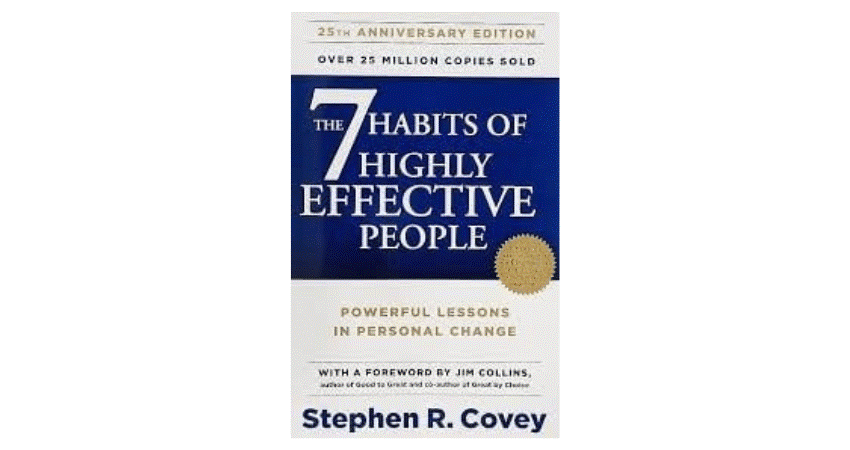
In order to be successful, it's important to develop certain habits. These habits include the following:
a) Taking the Initiative
b) Starting With a Clear Goal in Mind
c) Prioritising Important Tasks
d) Striving for Mutual Benefits
e) Active Listening
f) Seeking to Understand Others
g) Working Collaboratively
h) Consistently Improving Oneself
Covey provides actionable steps and insightful anecdotes to illustrate each habit and its application in different aspects of life. This book has become a classic in the self-help genre, empowering readers to take control of their lives and become more proactive and purpose-driven. Covey’s principles continue to resonate with individuals seeking personal and professional transformation.
11) The Happiness Hypothesis: Finding Modern Truth in Ancient Wisdom
This book by Jonathan Haidt combines Psychology, Philosophy, and Neuroscience to discover the roots of happiness. Haidt offers realistic insights based on historical expertise and scientific studies. The book examines ten brilliant thoughts from various traditions and investigates their relevance to happiness in the present context.
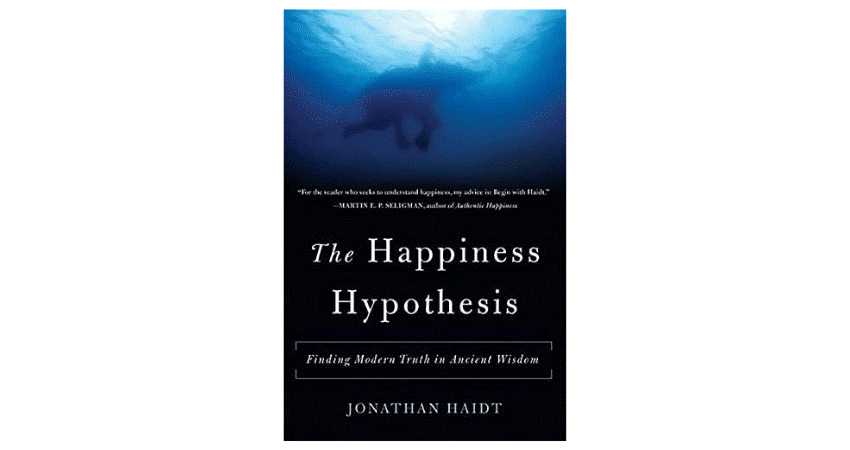
Haidt explores subjects such as the pursuit of delight, the significance of relationships, and the importance of meaning and purpose. “The Happiness Hypothesis” encourages readers to mirror on their own values and beliefs and affords steerage on the way to domesticate an extra enjoyable and significant life. Haidt’s engaging writing style and capacity to combine numerous perspectives make this book a precious useful resource for everybody, who seeks a deeper understanding of happiness.
12) The Tipping Point: How Little Things Can Make a Big Difference
“The Tipping Point” by Malcolm Gladwell explores the factors that make a contribution to the surprising and considerable adoption of thoughts, developments, and behaviours. Gladwell uncovers the social dynamics that force massive adjustments in society. The book introduces the concept of the tipping factor and refers to the instant when a small transformation leads to a dramatic and irreversible shift.
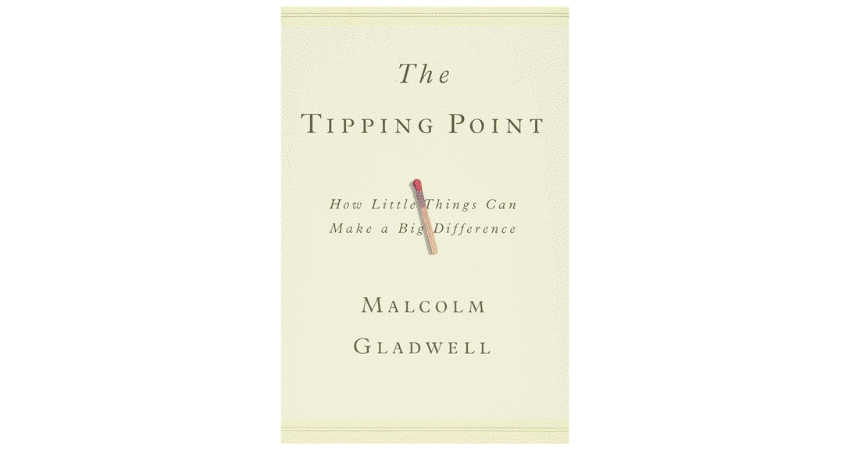
Gladwell examines case research and identifies three key factors contributing to the tipping point, including-
a) the regulation of the few
b) the stickiness thing
c) the power of context
Further, “The Tipping Point” explores how thoughts and trends spread and offer insights into how people can impact social trade. Gladwell’s engaging storytelling and notion-scary evaluation make this e-book each informative and enjoyable to study.
Try our Psychology of Behaviour at Work Training and learn how personal aspects can impact workplace behaviour!
13) Thinking in Bets: Making Smarter Decisions When You Don't Have All the Facts
“Thinking in Bets” by Annie Duke examines decision-making through the lens of a professional poker. Duke explores how probabilistic questioning and embracing uncertainty can result in better choice-making in numerous domains. The book highlights the significance of understanding the distinction between an excellent choice and an amazing outcome, as good fortune regularly influences consequences.
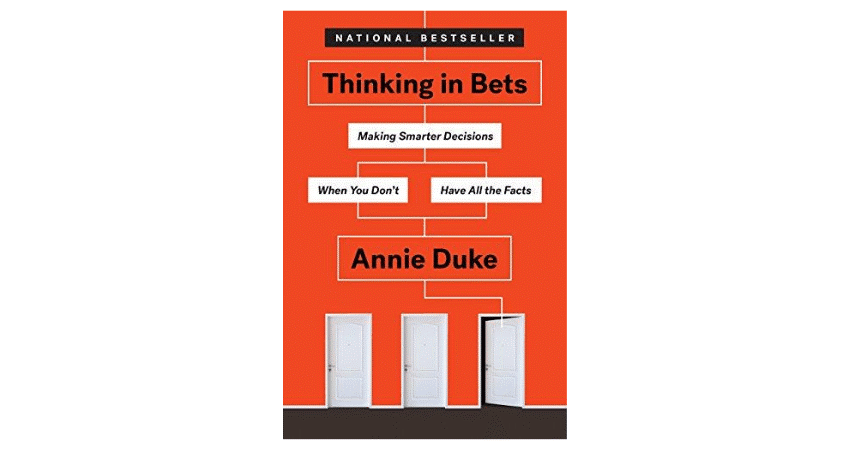
Duke gives sensible techniques for making choices in an uncertain world, such as focusing on the method as opposed to the final results, thinking about more than one views, and embracing feedback. “Thinking in Bets” challenges readers to re-evaluate their method to choice-making and offers a sparkling attitude on a way to navigate complexity and ambiguity. Duke’s specific blend of personal anecdotes and poker insights makes this book a compelling and realistic study.
14) Stumbling on Happiness
“Stumbling on Happiness” by Daniel Gilbert challenges your understanding of what makes us happy. Gilbert explores the cognitive biases that influence your perceptions of happiness and provides insights into finding true fulfilment. The book explores how mind imagines and anticipates future happiness, often leading to inaccuracies and misjudgements.
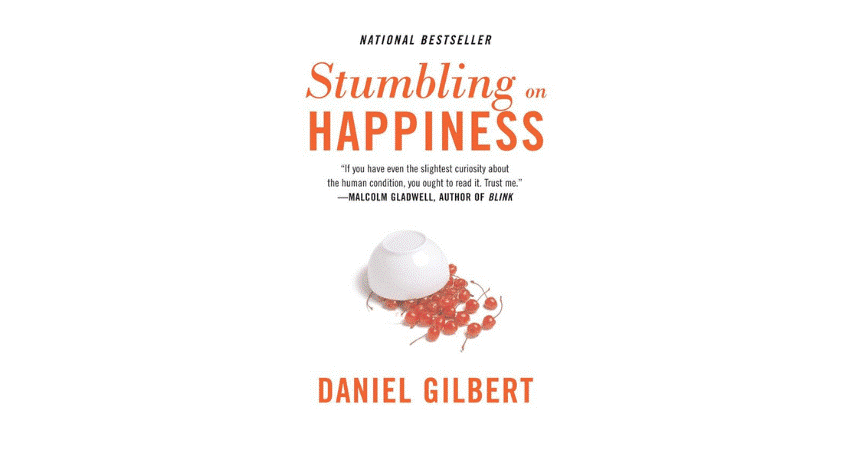
Gilbert uncovers the idea of affective forecasting and the way it could cause mistakes in predicting emotional responses. Through attractive anecdotes and clinical research, “Stumbling on Happiness” gives a thought-provoking exploration of the human quest for happiness and encourages readers to mirror on the character in their personal happiness. Gilbert’s witty and reachable writing style makes this book a satisfying and enlightening example.
15) In the Realm of Hungry Ghosts: Close Encounters with Addiction
This book of Gabor Maté offers a compassionate exploration of addiction and its underlying causes. Maté attracts on his experience as a medical doctor working with individuals suffering with dependency and examines the mental, social, and biological factors contributing to addictive behaviours.
The book challenges the conventional understanding of addiction as a moral failing and sheds light on the deep-rooted pain and trauma that often underlie substance abuse. Maté advocates for a compassionate and holistic approach to addiction, emphasising the importance of understanding and addressing individuals' underlying emotional and psychological needs. This book provides valuable insights into addiction and offers a fresh frame of mind on how to approach and support individuals on their journey to recovery.
16) The Man Who Mistook His Wife for a Hat
This book by Oliver Sacks is a collection of fascinating case studies exploring the human brain's complexities. Sacks, a renowned Neurologist, shares testimonies of individuals with neurological problems and offers insights into the intricacies of perception, memory, and identification.
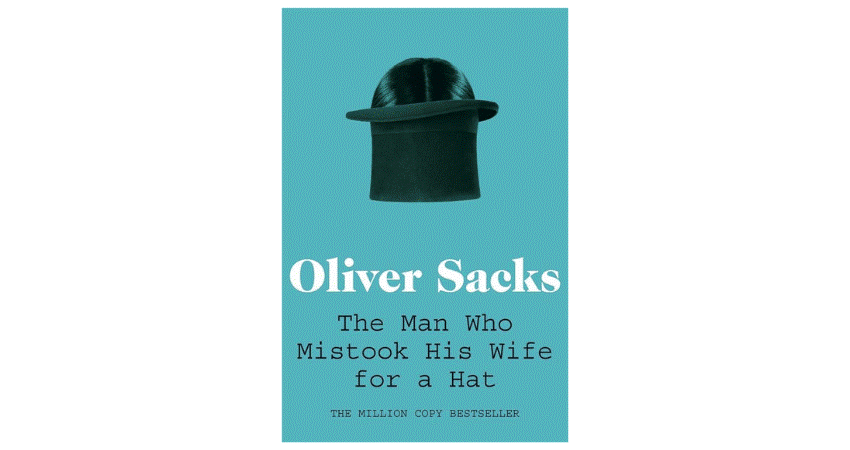
The book delves into the demanding situations confronted by using those dwelling with neurological situations and sheds light on the resilience and adaptability of the human thoughts. Sacks integrate scientific rigour with a compassionate and humanistic approach. The author paints a vivid picture of the numerous approaches wherein mind can function. “The Man Who Mistook His Wife for a Hat” invites readers to ponder the mysteries of the mind and the profound impact of neurological conditions on human experience.
Develop an understanding of people’s mind and behaviour with our Social Psychology Training - join us today!
17) Predictably Irrational: The Hidden Forces That Shape Our Decisions
“Predictably Irrational” by Dan Ariely explores the quirks and biases influencing our decision-making methods. Ariely challenges the belief that human beings are rational beings and provides proof of the irrational and predictable patterns in their choices.
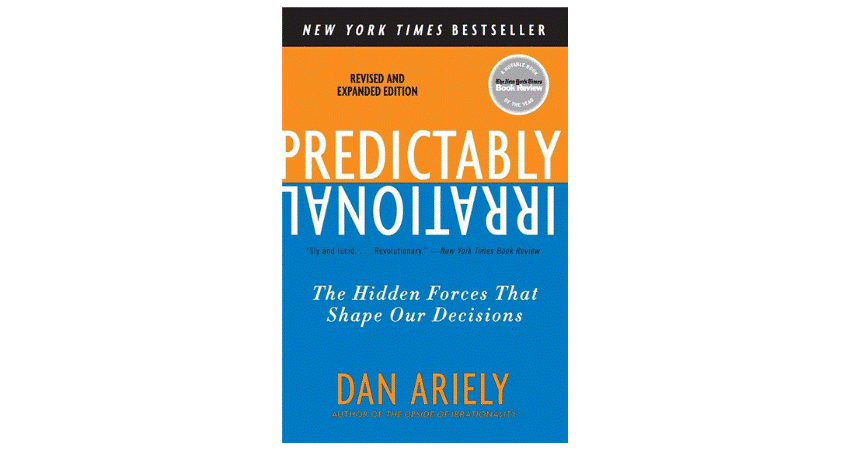
The book delves into subjects such as the affect of social norms, the energy of free offers, and the effect of emotions on decision-making. Through attractive experiments and actual-lifestyles examples, Ariely reveals the hidden forces that form individual’s choices and offers insights into how they are able to make greater knowledgeable choices. “Predictably Irrational” is a thought-provoking exploration of human behaviour and affords precious training for understanding decision-making inclinations.
18) Maps of Meaning: The Architecture of Belief
The book “Maps of Meaning" by Jordan B. Peterson is a comprehensive exploration of the psychological and symbolic underpinnings of human belief systems. Peterson examines the role of mythology, religion, and narrative in shaping human understanding and behaviour.
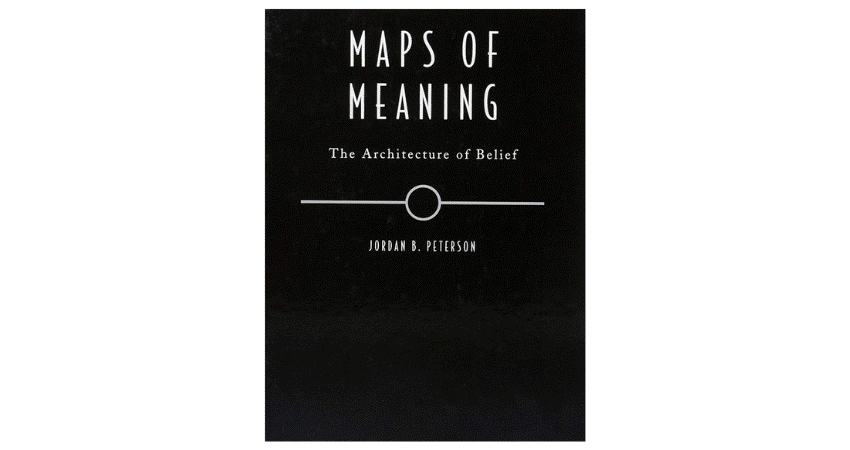
The book dives into topics such as the nature of good and evil, the structure of narratives, and the significance of archetypes. Peterson offers a multidisciplinary approach, drawing from Psychology, Anthropology, and Philosophy to unravel the complexities of meaning-making. “Maps of Meaning” delves deep into the human psyche and invites readers to reflect on the profound influence of belief systems on individual and collective identity.
19) The Interpretation of Dreams
This book by Sigmund Freud is a seminal work in the field of Psychology. Freud explores the significance of dreams and their connection to unconscious desires and conflicts. The book delves into the mechanisms of dream formation, symbolism, and the interpretation of dream content.
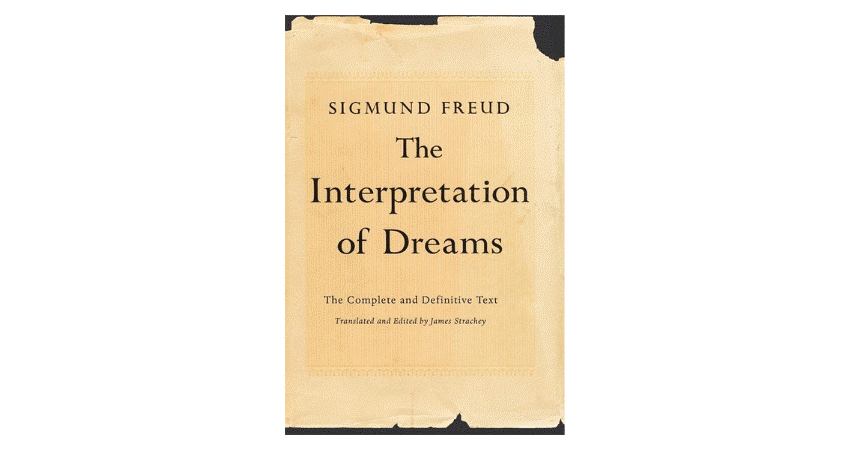
Freud proposes that dreams are a window into the unconscious mind and offer insights into the hidden meanings behind dream symbols and narratives. “The Interpretation of Dreams” has revolutionised the understanding of dreams and their psychological significance. Although some of Freud’s theories have been debated and revised over time, this book remains a cornerstone in the field of Psychoanalysis.
20) Daring Greatly: How the Courage to Be Vulnerable Transforms the Way We Live, Love, Parent, and Lead
“Daring Greatly” by Brené Brown explores the power of vulnerability and its transformative impact on various aspects of one’s lives. Brown challenges the societal perception that vulnerability is a weakness and presents it as a strength that allows for deeper connections and personal growth.
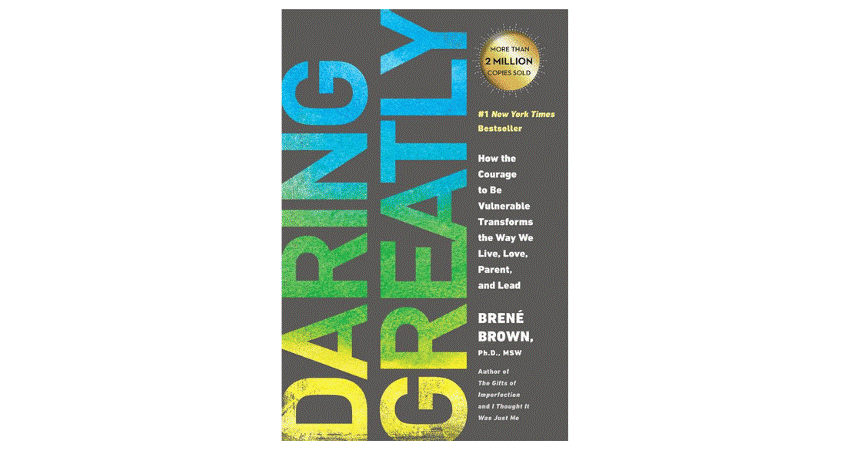
The book deals with topics such as shame, courage, and resilience and offers practical strategies for embracing vulnerability and overcoming the fear of judgment and rejection. Through engaging stories and research findings, Brown encourages readers to cultivate a wholehearted and authentic way of living. “Daring Greatly” provides a compelling argument for embracing vulnerability and unlocking your true potential in relationships, work, and personal development.
21) The Comfort Book by Matt Haig
The Comfort Book is a warm and personal embrace in the form of a book — something even the finest Psychology Books have not previously addressed. If you seek a guide to self-love, contentment, and emotional resilience, then Matt Haig’s reflections on the conflicting emotions of existence are for you. Haig’s insights are drawn from his own challenging experiences, with the hope that they can help you navigate similar situations.
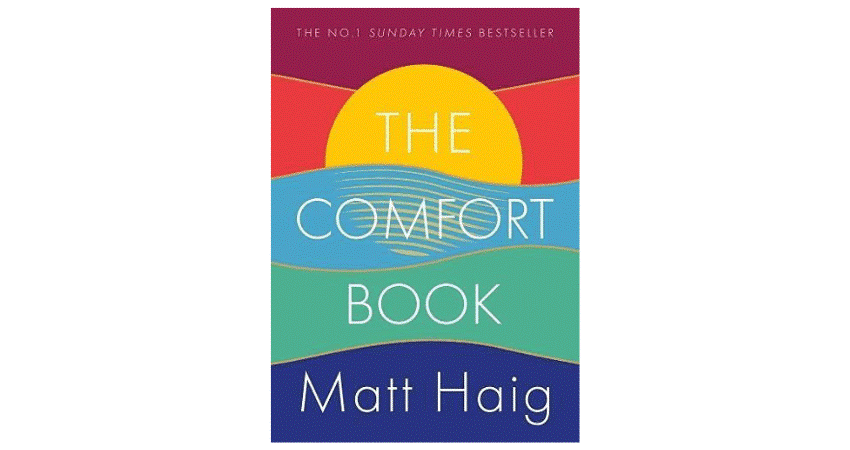
It is immensely reassuring to know that you are not alone in facing difficulties, and Haig understands this deeply. By drawing on maxims, meditations, and the inspirational lives of others, he aims to nurture your inner strength and offer advice like a wise, empathetic old friend.
22) The Psychopath Test: A Journey through the Madness Industry
In The Psychopath Test, Ronson embarks on a journey to investigate whether many top CEOs and politicians are indeed psychopaths. He recounts his encounters with psychopaths, as well as with the psychologists and psychiatrists who study them. The book also delves into the methods of diagnosing psychopathy and examines the Psychopath Test developed by Bob Hare.
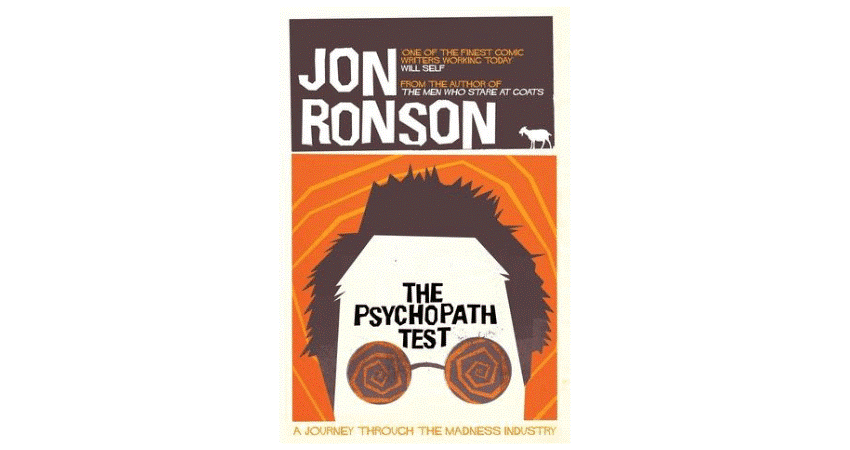
Ronson provides fascinating insights into the minds of psychopaths, along with some captivating stories, making this book a compelling read.
23) The Personality Brokers by Merve Emre
It features a widely-used test for determining personality traits – the Myers-Briggs Type Indicator. This book explores how this personality indicator achieved such widespread success, while also examining the various factors that shape our identities.
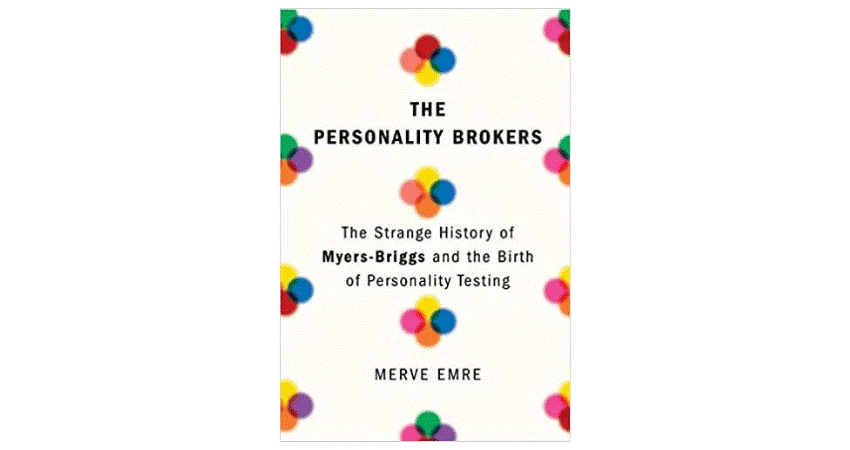
Key contents include the story of Katherine Briggs and her daughter Isabel Myers, who based their personality test on the controversial theories of Carl Jung. Briggs developed her initial personality test during a period when Americans were particularly receptive to such ideas, thus ushering in the era of self-help literature.
24) Predictably Irrational, Dan Ariely
This book, written by behavioural economics expert and Duke University professor Dan Ariely, might make you think differently. Through a series of fascinating experiments, Ariely examines all the invisible factors that influence our decision-making, from emotions to social norms and expectations.
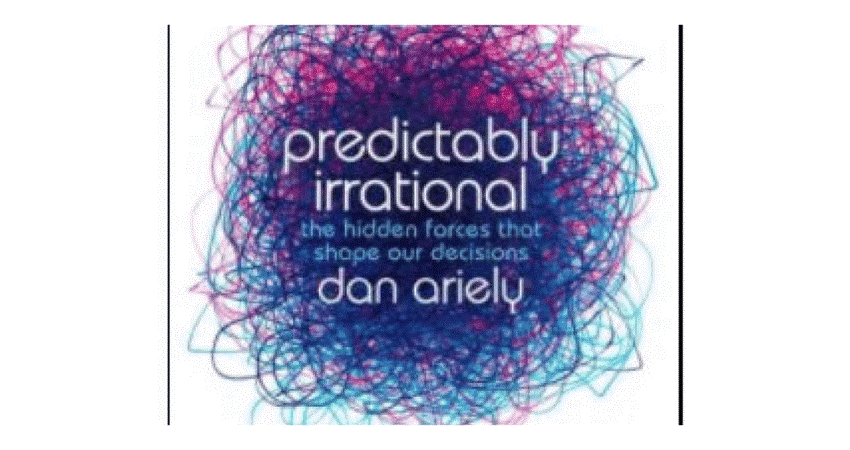
What makes it even more intriguing is Ariely’s assertion that our poor decisions are not made randomly, which is why so many of us are ‘predictably irrational’.
25) The Oracle of Night: The History and Science of Dreams by Sidarta Ribeiro
Sidarta Ribeiro delves into what really makes a dream, why we have them, and how they affect us. He uses these themes as a springboard for his fresh and enthralling study of dreams, tracing them back to our ancient ancestors. Ribeiro finds the first traces of human dreams in the earliest cave paintings and begins unlocking revolutionary conclusions about the role of dreams in human evolution.
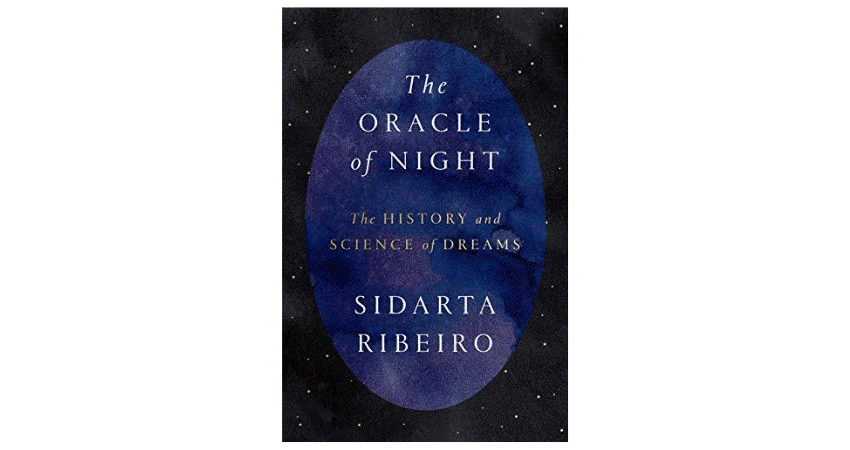
Contemporary neuroscience and Psychology have uncovered many findings about dreams, such as their role in healing trauma or consolidating what we learned the day before. This makes it an excellent book club choice to ignite conversation. Ribeiro combines his absolute authority on the topic with a clear, compelling writing style, making this book a page-turner from start to finish.
Conclusion
With our Top 26 Most Popular selections, you can explore the transformative power of Psychology Books. These essential reads offer profound insights into human behaviour, mental health, and personal growth. So, let them be your gateway to a deeper understanding of the human mind.
Learn practical tools to enhance your well-being and resilience – join our Mental Health and Wellbeing Training now!
Frequently Asked Questions
Which Psychology Book is Best for Beginners?

For beginners, "Thinking, Fast and Slow" by Daniel Kahneman is an excellent choice. It explores the two systems of thinking, offering insights into human decision-making and behaviour. The book presents complex psychological concepts in a highly accessible way, making it ideal for newcomers to the field.
Is it OK to Read Psychology Books?

Absolutely! Reading Psychology Books can provide valuable insights into human behaviour and mental processes, enhancing self-awareness and understanding.
What are the Other Resources and Offers Provided by The Knowledge Academy?

The Knowledge Academy takes global learning to new heights, offering over 3,000 online courses across 490+ locations in 190+ countries. This expansive reach ensures accessibility and convenience for learners worldwide.
Alongside our diverse Online Course Catalogue, encompassing 19 major categories, we go the extra mile by providing a plethora of free educational Online Resources like News updates, Blogs, videos, webinars, and interview questions. Tailoring learning experiences further, professionals can maximise value with customisable Course Bundles of TKA.
What is The Knowledge Pass, and How Does it Work?

The Knowledge Academy’s Knowledge Pass, a prepaid voucher, adds another layer of flexibility, allowing course bookings over a 12-month period. Join us on a journey where education knows no bounds.
What are the Related Courses and Blogs Provided by The Knowledge Academy?

The Knowledge Academy offers various Mental Health Courses, including the Mental Health and Wellbeing Training, Mental Capacity Training, and Mindfulness Training. These courses cater to different skill levels, providing comprehensive insights into Evolutionary Psychology.
Our Health & Safety Blogs cover a range of topics related to Psychological Facts, offering valuable resources, best practices, and industry insights. Whether you are a beginner or looking to advance your Health and Safety knowledge, The Knowledge Academy's diverse courses and informative blogs have got you covered.
Upcoming Health & Safety Resources Batches & Dates
Date
 Psychology Course
Psychology Course
Fri 23rd May 2025
Fri 4th Jul 2025
Fri 5th Sep 2025
Fri 5th Dec 2025






 Top Rated Course
Top Rated Course



 If you wish to make any changes to your course, please
If you wish to make any changes to your course, please


